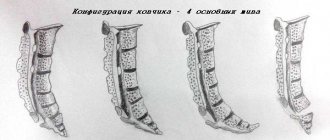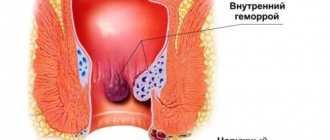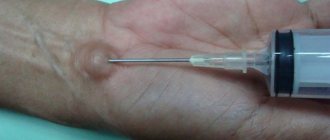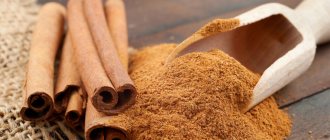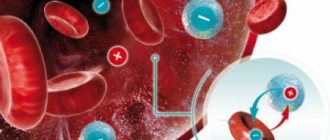Diarrhea is a consequence of various gastrointestinal disorders and pathological changes in the body. Loose stools can occur in every person several times during their life.
There are many causes and types of symptoms. Therefore, it is important to know how to cure diarrhea and correctly determine the type and degree of danger.
Different symptoms of digestive disorders require a differentiated approach to diagnosis and treatment.
Short-term loose stools without accompanying symptoms may not pose a serious health threat.
Diarrhea with a large amount of mucus, blood, and additional manifestations of the disease requires special attention and urgent measures.
In this article, we will look at what different types of diarrhea are, their causes, methods of diagnosis and treatment.
Causes of stool with mucus in an adult
The causes of severe diarrhea with mucus in an adult can be both pathological and physiological, natural. The latter includes the presence in the diet of a large number of foods with coarse fiber, for example, cereals. Fiber, like a whisk, cleanses the walls of the gastrointestinal tract from undigested food debris, including in the form of mucus.
A natural cause of such a peristalsis disorder is uncontrolled, irrational use of pharmacological drugs:
- antibiotics, sulfonamides, antimicrobial agents;
- glucocorticosteroids;
- antacids, proton pump inhibitors;
- laxatives with ingredients of both natural and synthetic origin;
- non-steroidal anti-inflammatory drugs.
Diarrhea with mucus often occurs in people with low stress tolerance . They experience even ordinary everyday conflicts so acutely that the regulatory function of the central nervous system is upset. Such adults are often diagnosed with “irritable bowel syndrome.”
Pathological causes of diarrhea with mucus include intoxication of the body, infectious and non-infectious diseases, helminthiases, and dysbacteriosis.
Intoxication
Diarrhea with mucus is a characteristic manifestation of acute or chronic intoxication. This is a protective reaction of the body aimed at accelerating the evacuation of harmful substances that have penetrated or accumulated in the gastrointestinal tract:
- metabolites of pharmacological drugs;
- pathogenic microorganisms and toxic products of their vital activity;
- allergic agents of any origin;
- salts of heavy metals, caustic acids and alkalis;
- poisonous plants, fruits, berries.
Chronic intoxication with diarrhea and yellow feces can occur hidden. Severe clinical symptoms, including mucus that appears with diarrhea, occur when toxins accumulate. Ultimately, this leads to a decrease in adaptation and regulatory mechanisms, disruption of the activity of various organs and systems.
Infections
If copious mucus comes out instead of feces, then doctors immediately suspect the introduction of pathogenic bacteria into the body - staphylococci, streptococci. A similar symptom can also be provoked by the activation of conditional pathogens that previously peacefully “dormant” in the gastrointestinal tract, mainly Escherichia coli. Bacteria quickly grow and multiply, releasing toxic products of their vital activity into the surrounding space. All of them are found in watery stool with mucus, because with the help of diarrhea the body tries to cleanse itself of them.
Viral and mycotic intestinal infections are detected somewhat less frequently in adults. Introduction of rotavirus into the stomach and then into the intestines always causes acute diarrhea. It can also complicate the course of respiratory infections, but mainly in children and weakened adults.
Gastrointestinal diseases
Feces in the form of an almost transparent liquid with mucus impurities are observed in some pathologies of the gastrointestinal tract. Moreover, this happens during their exacerbation, and during the period of remission, peristalsis normalizes.
Similar symptoms are typical for the following diseases:
- gastritis. With acute inflammation of the gastric mucosa, digestion is upset, provoking the rapid advancement of the food bolus to the rectum;
- pancreatitis. Insufficient production of digestive enzymes by the pancreas leads to disturbances in the metabolism of proteins, fats and carbohydrates;
- colitis. The inflammatory disease occurs with pain, flatulence, and the appearance of mucus in the stool;
- enterocolitis. The inflammatory process in the small intestine is accompanied by diarrhea, which is very severe.
Streaks of blood and mucus in the stool are also typical for Crohn's disease. This granulomatous inflammation of the digestive tract causes abdominal pain and diarrhea, and sometimes intestinal bleeding.
The appearance of dark mucus in stool during diarrhea is also observed in other diseases - hepatitis, cholecystitis, ulcerative lesions of the stomach and duodenum.
Helminthiasis
If, with diarrhea, copious mucus comes out with feces, there is a high probability of helminthic infestation (helminthiasis). This is the name for damage to the intestines by parasitic worms (round, tape, flat, spiny-headed, ringed). Their active growth and reproduction provokes disruption of nutrient absorption processes and is accompanied by the development of polyhypovitaminosis, as well as a progressive decrease in body weight.
Dysbacteriosis
When there is a lot of mucus in the stool, and diarrhea occurs with alarming frequency, there is a high risk of death of beneficial bifidobacteria in the intestines. Dysbiosis develops - a pathology that accompanies many diseases of the digestive system, long-term or uncontrolled use of antibiotics and immunosuppressants. This condition is dangerous due to the activation of pathogenic bacteria that begin to move up the digestive tract.
Drug therapy
After the specialist manages to identify the cause of the change in the structure of stool, he will prescribe the patient a course of drug therapy, which may include the following groups of drugs:
- Group of enterosorbents. The pathological condition is eliminated with the help of “Polysorb”, “Smecta”, “Filtrum”, “Activated or white carbon”, “Polyphepan”.
- A group of antisecretory medications. This category of patients can be prescribed Emanera, Omeprazole, Omeza, and Nolpaza tablets.
- Group of prebiotics. Patients can normalize digestive processes with the help of “HalikForte”, “Bifiform”, “Bifikol”, “Lizobakt”, “Riolaflora Balance”, “Lactobacterin”.
- A group of carminative medications. Patients are prescribed tablets “Kolofort”, “Espumizan”, “Motilium”, “Pepsan-R”.
- Group of antispasmodics. If the process of defecation is accompanied by discomfort and pain, then patients may be prescribed tablets “Spazgana”, “Brala”, “Papaverine”, “Drotaverine”, “Galidor”, “No-shpy”, “Duspatalin”, “Bruscopan”.
- A group of medications that can normalize intestinal motility. For patients, specialists can prescribe tablets “Nitrofungin”, “Phtalazol”, “Intetrix”, “Enterofuril”, “Trimedat”, “Imodium”, “Enterol”, “Furazolidone”, “Sulgin”.
- A group of antidepressants. If a disturbance in the structure of feces is associated with stress or constant psycho-emotional stress, then specialists prescribe medications to patients that have a sedative effect. For example, tablets “Fevarin”, “Sertalitin”, “Fluoxetine”, “Amitriptyline”, “Imipramine”.
- Group of dietary supplements. Biological supplements help normalize digestive processes. People are recommended to use Gastrofilin, Litovit, Nutricon, Bifidophilus, Loklo.
- For serious pathologies, specialists can supplement treatment regimens with corticosteroids, antifungal medications, sedatives, pancreatic enzymes, and antibiotics.
Symptoms of diarrhea with mucus
The appearance of mucous stool in an adult is typical for infections, chronic pathologies, and helminthic infestations. Each disease has its own clinical picture. For example, black feces with mucus are released when there are tumors in the intestines or obstruction. But there are also common features.
Diarrhea with mucus is especially often accompanied by the following symptoms:
- bloating;
- pain syndrome of varying severity;
- urge to vomit;
- nausea;
- lack of appetite;
- loss of body weight;
- weakness, apathy, fatigue;
- dry skin and mucous membranes;
- increase in body temperature.
Source lamifaren.kz
Green diarrhea with mucus in adults is observed more often with an infectious lesion of the gastrointestinal tract. Diarrhea in such cases is acute, complicated by severe abdominal pain.
Diagnostics
If a person has rumbling in the intestines and has mushy stools, then he needs to go to a medical facility for consultation. Before diagnosing a patient and prescribing a course of medication, a specialist must conduct a number of diagnostic studies:
- First of all, the doctor interviews the patient . He should learn about his diet, lifestyle, and medications.
- The patient will have to undergo all basic tests : stool, urine, blood.
- FGDS is being carried out. Thanks to examination of the gastrointestinal tract using an endoscope, specialists are able to assess the condition of the mucous membranes and identify pathologies. If necessary, the diagnostician collects biological material, which is submitted for histological examination.
- The patient undergoes a colonoscopy . During this diagnostic procedure, a specialist inserts a probe into the rectum, which makes it possible to identify pathologies of the intestine, both small and large.
- An ultrasound examination is performed . The diagnostician evaluates the condition of all gastrointestinal organs.
Treatment for diarrhea with mucus
The appearance of frequent stools with mucus in an adult can be a symptom of severe intoxication, food poisoning, or infection. In such cases, stopping diarrhea is strictly prohibited. The removal of toxins, bacteria, and viruses from the gastrointestinal tract will stop, which will significantly accelerate their spread in the body . It is permissible to use fixatives for mushy stools with slight inclusions of mucus.
Drug treatment
For liquid stool with mucus, pharmacological drugs based on loperamide, for example, Imodium, are used. You should take no more than 1 tablet or capsule every 3 hours. If the patient's condition does not improve within 10 hours, it is necessary to seek medical help.
If there is mucus in the stool, treatment is aimed at eliminating the cause of diarrhea. For infestations, anthelmintics are needed, for inflammation, non-steroidal anti-inflammatory drugs, and for infections, antibiotics.
Self-treatment for foam in the stool is prohibited. This type of diarrhea often signals poisoning with household chemicals. If a child becomes intoxicated and develops diarrhea with mucus, immediate hospitalization is necessary.
Folk remedies
Folk remedies for diarrhea should not be used in the treatment of pregnant women, children, weakened patients, or people prone to developing allergic reactions. The most commonly used in treatment are decoctions of medicinal plants:
- alder fruits;
- oak bark;
- bird cherry berries;
- cinquefoil root.
To prepare an infusion for diarrhea, pour a teaspoon of dry plant material into a glass of boiling water. After 40 minutes, cool, strain, drink 100 ml in small sips three times a day.
Diet
Doctors recommend that patients with diarrhea refuse to eat on the first day. But you need to drink a lot - plain and mineral water, chamomile and rosehip tea. On the second day, you should eat white bread croutons with clear broths, cereal porridges, especially rice porridge with a fixing effect. Fermented milk products, fish and lean meat are healthy. If you have diarrhea, you should exclude fresh berries and fruits, vegetable salads, smoked meats, processed foods, and fast food from your diet.
Complications
If a person has mushy stool, which is not accompanied by additional symptoms, then a diet and some medications are usually sufficient to normalize its consistency. In the case when such a condition is accompanied by serious complications, for example, the development of pathologies in the pancreas, the patient will have to face very unpleasant and dangerous consequences. It is also worth noting that with mushy bowel movements, fluid is removed from the human body. If this condition lasts for a long period of time, the patient may become dehydrated.
What is mushy stool?
In every healthy person, feces are formed in the large intestine under certain conditions. With normal functioning of the digestive system, the stool is soft but formed. However, if for some reason a malfunction occurs, the feces acquire a characteristic mushy consistency. If such a symptom is the result of an error in diet, then you should not worry, as this is considered a variant of the norm. However, with daily and frequent bowel movements that result in mushy stools, you should think about a more serious reason.
The Bristal stool scale shows normal and pathological options
Varieties: for a long time, frequent, with mucus, in the morning and others
Depending on additional conditions, the following types of this symptom can be distinguished:
- Pasty stools for a long time and accompanied by flatulence. Can appear at any time. Most often accompanied by various gastrointestinal pathologies.
- Frequent. In this case, emptying can occur more than 3 times a day.
- Appears in the morning. May be accompanied by nausea and other digestive disorders.
- With mucus. Mucous streaks may be present in sufficient quantities in the stool.
- Thick with particles of undigested food. Pasty stools may be patchy and have a porous structure. Quite often contains some food fragments.
Diagnostics
The specialist will prescribe tests and examinations that will help determine the cause of this phenomenon. A coprogram, test for eggworms, ultrasound of the abdominal organs, colonoscopy, endoscopy will help you find out what could be causing the liquid stool.
Further treatment will be aimed not only at eliminating the symptoms, but also at eliminating the cause of this failure.
https://youtu.be/6rb8tR_bwxE
One of the main causes of constipation or diarrhea is poor diet.
.
Therefore, to improve bowel function, you need to drink a simple drink
.
https://youtu.be/FJGtUMwGYkY
Diagnostic measures
A timely approach to diagnosis is extremely important to determine the cause and eliminate symptoms. Basic research methods:
- Questioning the patient. It is carried out in order to eliminate errors in the diet. The doctor asks the patient about medications taken that could cause changes in stool.
- FGDS. Endoscopic examination of the stomach and duodenum is carried out by probing. In this case, a thin tube with an optical device at the end is inserted into the esophagus and from there moves towards the stomach and duodenum. In this case, areas of inflammation and other changes in the mucous membrane are determined.
- Colonoscopy. Similar to the previous method, only in this case the probe is inserted through the rectum. In this way, pathologies of the large and small intestines are diagnosed.
- Ultrasound. Ultrasound examination of the abdominal cavity can detect diseases of the pancreas and gall bladder.
Nutrition rules
To normalize the consistency of stool, patients must adhere to a special diet. First of all, they need to limit the amount of plant food in their diet, as it speeds up peristalsis.
The patient’s menu should contain the following products:
- Bakery and pasta products.
- Cereals in the form of porridges, for example, rice, buckwheat.
- Cookie.
- Potato.
- Persimmons, bananas.
Symptoms of the disease
In most cases, stool retention is accompanied by increased secretion of mucus in the stool.
The most common symptoms of mucous discharge in stool:
difficulty defecating; pain during bowel movements; increased body temperature; nausea, vomiting; cloudy stool; hard consistency of stool; bowel movement does not bring relief; flatulence.
At the first signs of increased mucus discharge with feces, you should consult a specialist to identify the cause of the pathological condition.



